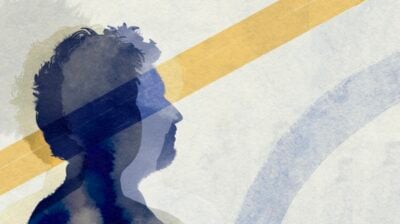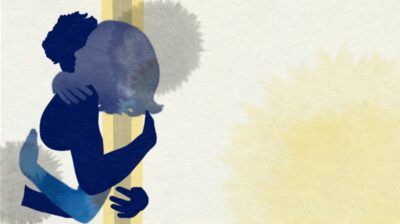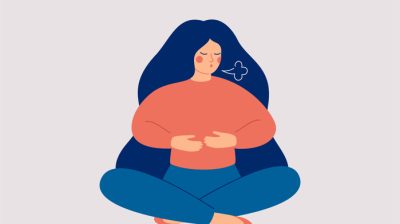How to get support for self-harm
Self-harm recovery can be a challenging process, but accessing support can help you to recover from self-harm.

If you engage in self-harm, you may feel quite alone or like nobody understands what you’re going through. But support for self-harm is available and recovery is possible with the right support.
If you are seeking help for self-harm but you are not currently in danger, it can help to tell someone you trust about the self-harm and how you are feeling. It can be someone you are close to, a mental health professional or a trained volunteer at a free, anonymous 24/7 listening service.
If your safety or the safety of someone you know is at risk due to self-harm, you should immediately call an ambulance on 999 (for Ireland and the UK) or 112 (works in Ireland and across the EU). Learn more about how to help someone in a self-harm emergency.
How to get support for self-harm
Finding the right support can make a big difference in your journey towards recovery.
Getting help from someone close to you
As a starting point, you may feel more comfortable reaching out to someone you know for support. Whether you choose to talk to a friend, family member, healthcare professional, or other trusted adult like a teacher, sharing what you’ve been experiencing can be a first step to understanding and support.
Learn more about how to tell someone you self-harm.
Getting support for self-harm from a helpline or support service
If you would like to speak to someone but are not ready to talk to someone you know about self-harming, there are helplines and support services available, many of which operate around the clock to provide support whenever you need it. If the person you confide in does not respond as you hoped, there are always other supports available to help you.
Text About It
Text About It is a free service funded by the HSE, offering confidential support via text anytime, day or night. Trained volunteers are available to chat and provide assistance, text HELLO to 50808 to begin a conversation.
Samaritans
Samaritans offers confidential emotional support in the UK and Ireland, available 24/7 for anyone experiencing distress, including thoughts of suicide. In the Republic of Ireland, you can reach Samaritans for free at 116 123, email them at [email protected], or locate a local branch.
Pieta
Pieta provides free counselling for those experiencing suicidal thoughts, engaging in self-harm, or those affected by suicide. The Pieta helpline, staffed by qualified therapists, is available 24/7 at 1800 247 247, or you can text HELP to 51444.
Childline 24 Hour Support Line
Childline provides a free 24-hour support line for all children and young people in Ireland up to and including the age of 18. You can access confidential, non-judgmental support for any problem, big or small.
It’s possible to contact Childline for free at any time of the day or night by calling 1800 66 66 66. You can also chat with a trained volunteer via the Live Chat button on the Childline website.
Traveller Counselling Service
If you are a young Traveller and would like to speak to a counsellor who specifically works with the Travelling Community, the Traveller Counselling Service can support you. The service works from a culturally inclusive framework which respects Traveller culture, identity, values and norms and works from a perspective of culture centred counselling and psychotherapy. They offer counselling both in person and online.
You can contact the Traveller Counselling Service by calling their landline at 01 868 5761, their mobile at 086 308 1476, or by emailing them at [email protected].
LGBTQIA+ Ireland Helpline
The National LGBTQIA+ Helpline provides support for the LGBTQIA+ community. Helpline volunteers will listen without judgement if you are confused or struggling with your sexual orientation, sexuality, gender expression and gender identity. You can connect with the helpline Monday to Thursday from 6:30pm to 10:00pm, Fridays: 4:00pm to 10:00pm, and weekends from 4:00pm to 6:00pm. Tel: 1800 929 539
Read more about their services on the LGBT Ireland website.
If you need help finding services or support, you can freephone the HSE mental health information line on 1800 111 888 any time of the day or night.
Getting support for self-harm from your GP
If you are seriously injured and need urgent medical attention, call Emergency Services on 999. You can take some of the steps outlined below if you are not in need of immediate medical support.
If you think you may need professional help, a visit to your GP is a good first step. A GP may treat any minor injuries, provide information about local support groups and/or potential self-help strategies. They can also direct people to non-profit organisations or charities offering mental health support and counselling, such as Pieta or Jigsaw. However, it’s important to note that you do not need a referral from a GP or medical professional to avail of these services. If they consider it appropriate, your GP might prescribe mental health medications, such as antidepressants.
If your GP does not respond or offer the type of support that feels right to you, you can ask to speak to a different GP.
Preparing for your GP appointment
Making a GP appointment to speak about self-harm might feel daunting. It can be helpful to write down what you want to say in advance, especially if you are concerned about remembering what you want to say or communicating your point clearly during the visit.
Preparing answers to common questions in advance of a GP visit can help if you become distressed or overwhelmed in the moment. It is likely that your GP may ask some of the following questions:
- The methods you use to self-harm
- When you started self-harming
- How often you self-harm
- Why you self-harm and how you feel afterward
- Whether or not you have any injuries that require treatment
- Whether or not you have any underlying mental health difficulties
- Your drug-taking and/or alcohol consumption habits
Referrals to Mental Health Services
Although you might be feeling reluctant to open up to your GP about self-harm, you are most likely to receive appropriate support when you are honest about your self-harm behaviours and what you think triggers them. If your doctor feels it is necessary, they may refer you to a specialised mental health service for assessment. Your GP may refer you to your local Adult Mental Health Service (AMHS) if you’re over 18 years, or your local Child and Adolescent Mental Health Service (CAMHS) if you’re under 18 years.
If you are under 18 and concerned about speaking to your GP about self-harm or treatment options, learn more about your right to medical consent and confidentiality.
If you are referred to your local CAMHS or AMHS, trained professionals on a multi-disciplinary care team conduct a thorough assessment and create a personalised care plan with you to support your emotional and psychological wellbeing. These professionals may include accredited counsellors, psychologists, psychiatrists, occupational therapists, and community mental health nurses
After being assessed, a multidisciplinary care team at either CAMHS or AMHS will recommend particular types of treatment and support in your care plan. These recommendations will be based on your individual needs and circumstances. In general, supports can include talk therapies, medication for underlying mental health conditions, or a combination of both.
Psychological therapies
The two most common types of talk therapies that mental health professionals recommend for self-harm are cognitive behavioural therapy (CBT) and dialectical behavioural therapy (DBT).
When an individual engages regularly in self-harm and shows substantial difficulties managing their emotions, their care team may offer them a number of sessions of CBT. CBT aims to help people feel better by taking a closer look at the impact of a person’s thought patterns. How a person thinks can significantly impact their mood. Sometimes, certain thoughts can be unhelpful and can lead to stress and/or anxiety. By learning to recognise these thoughts and what triggers them, you can start to understand why you feel and act in certain ways. This awareness can help you to:
- Understand what might be triggering and maintaining difficult emotions
- Identify unhelpful behaviours
- Solve problems more effectively
- Change habits to improve our quality of life
Alternatively, you may be offered a number of sessions of dialectical behavioural therapy (DBT) or dialectical behavioural therapy adapted for adolescents (DBT-A). When used with adolescents, this therapy combines individual therapy with skills training.
Find out more information on how to access counselling or psychotherapy in Ireland.
Medication
If the emotional distress leading to self-harm is because of an underlying mental health condition like anxiety or depression, a doctor may prescribe medication, such as an antidepressant.
Other coping strategies
While effective for many people who self-harm, CBT-based psychological therapies and/or medications may not work for everyone. It can be a process to discover the coping techniques, treatments, or support that work best for you.
You or someone close to you may be finding it difficult to resist the urge to self-harm even after they have received professional support. This is not uncommon. Expecting yourself or someone you love to stop self-harming immediately may not be realistic. Learning to gradually reduce and ultimately replace self-harm with less harmful and more effective coping techniques can take time.
When struggling to resist the urge to self-harm with treatment, a mental health professional may discuss self-harm minimisation strategies. While not appropriate for everyone, harm minimisation strategies or distraction techniques can help some people to avoid, delay or reduce further episodes of self-harm.
Read more about coping techniques to help you right now and coping techniques to help you in the long term.
Feeling overwhelmed and want to talk to someone?
- Get anonymous support 24/7 with our text message support service
- Connect with a trained volunteer who will listen to you, and help you to move forward feeling better
- Whatsapp us now or free-text SPUNOUT to 50808 to begin.
- Find out more about our text message support service
If you are a customer of the 48 or An Post network or cannot get through using the ‘50808’ short code please text HELLO to 086 1800 280 (standard message rates may apply). Some smaller networks do not support short codes like ‘50808’.






